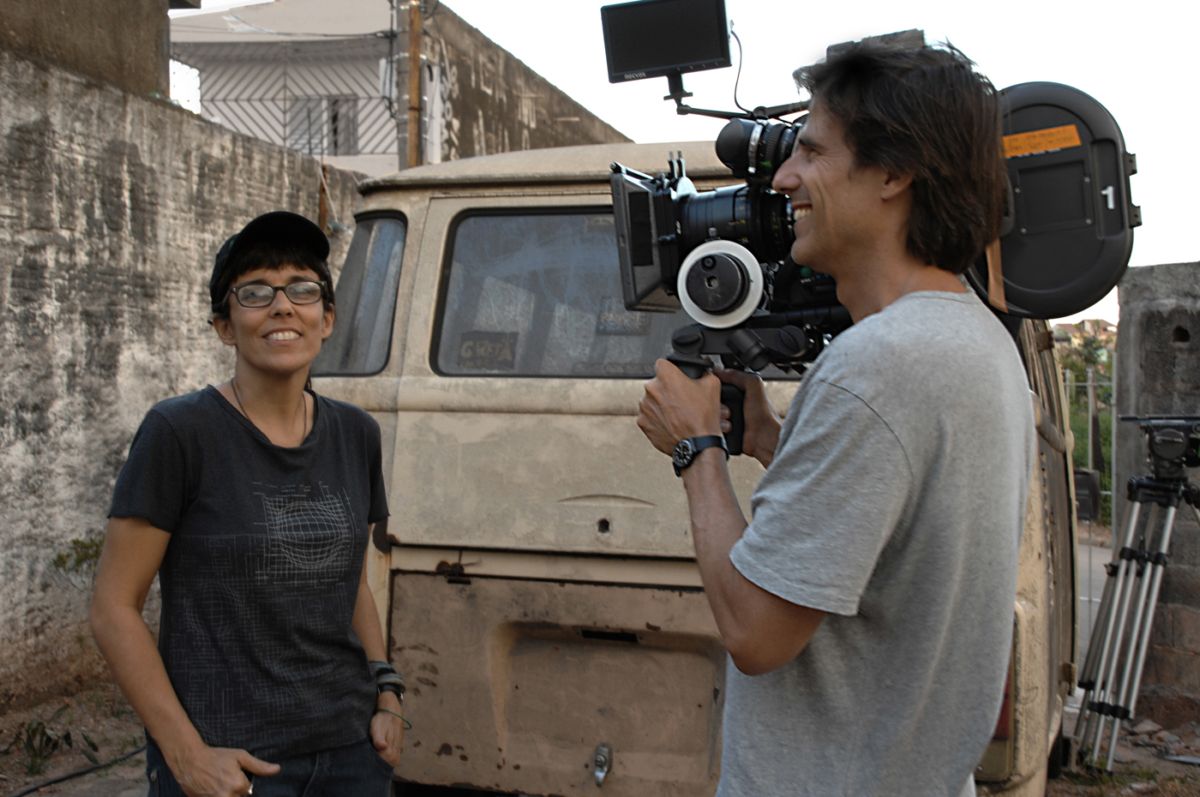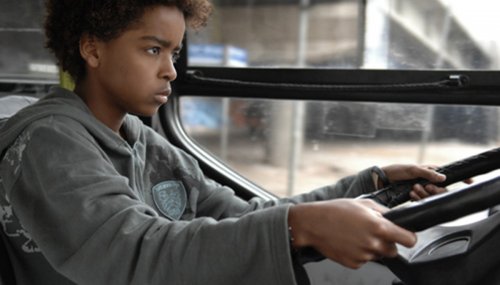 Walter Salles
Walter Salles
Born in 1956, he grew up in France and in the States before moving finally to Brazil. He begun his career directing documentaries during the Eighties. In 1991 he directed his first feature film A GRANDE ARTE (1991). Then he signed one of the most important Brazilian films TERRA ESTRANGEIRA (1995), directed with Daniela Thomas and winner of several International prizes. 1998 was the year of a new success CENTRAL DO BRASIL, awarded in Berlin (best film and best actress) and Oscar nominated as best foreign film. LINHA DE PASSE is his most recent work, directed with Daniela Thomas and screened in Cannes 2008.
Walter Salles
Nato nel 1956, cresce in Francia e negli Stati Uniti prima di trasferirsi definitivamente in Brasile. Salles comincia la sua carriera dirigendo documentari durante gli anni ’80. Nel 1991 dirige il suo primo film ARTE MORTALE (1991). In seguito firma uno dei più importanti film brasiliani TERRA STRANIERA (1995), diretto con Daniela Thomas, che vince numerosi premi internazionali. Nel 1998 è la volta di un nuovo successo CENTRAL DO BRASIL, premiato a Berlino come miglior film e per l'interpretazione di Fernanda Montenegro, e candidato all'Oscar come miglior film straniero. LINHA DE PASSE è il suo ultimo film, co-diretto con Daniela Thomas e presentato a Cannes 2008.
Daniela Thomas
Writer and director, in 1995 she directed TERRA ESTRANGEIRA with Walter Salles. In 1998 he wrote and directed MIDNIGHT and in 2006 the episode 16e ARRONDISSEMENT of the film PARIS, JE T’AIME.
Daniela Thomas
Sceneggiatrice e regista, nel 1995 ha diretto TERRA ESTRANGEIRA con Walter Salles. Nel 1998 ha scritto e diretto MIDNIGHT e nel 2006 l’episodio 16e ARRONDISSEMENT del film PARIS, JE T’AIME.
Directors’ statement
“LINHA DE PASSE was born out of the desire we had to look at how Brazil had changed, twelve years after we shot FOREIGN LAND. [...] In LINHA DE PASSE, as in FOREIGN LAND, youth is at the center of the story. In a country with soaring unemployment rates, soccer, religion or crime forge possible escape routes. Many youngsters flirt with criminality, but the vast majority refuses to follow this path. They are rarely the subject of films. This thematic unbalance has shaped a biased impression of our reality. We wanted to follow another route: a film where people could – for once – find a way out; where the conflict would be internal, related to questions of race and the absence of a family structure. But we did not avoid the contemplation of violence in our society. [...] Twelve years after FOREIGN LAND, Brazil has become even more conflictive and complex. A country where urgency and absurdity can become the norm. One thing has not changed, however, in all this time. A theme that links LINHA to FOREIGN LAND and also to CENTRAL STATION: the chronic absence of the father in our society. And in this absence, there lies the necessity of brotherhood”.
Dichiarazioni dei registi
“LINHA DE PASSE è nato dal desiderio che avevamo di vedere come il Brasile fosse cambiato, dodici anni dopo aver girato TERRA STRANIERA. […] In LINHA DE PASSE, come in TERRA STRANIERA, la gioventù è al centro della storia. In un Paese con un crescente tasso di disoccupazione, il calcio, la religione o il crimine sono le sole vie da percorrere. Molti ragazzi hanno rapporti con la criminalità, ma la grande maggioranza rifiuta di seguire questa strada. E questi ragazzi raramente diventano protagonisti di film. Questo squilibrio tematico ha creato un’impressione distorta della nostra realtà. Noi volevamo seguire un altro percorso: un film in cui le persone riuscissero per una volta a trovare una via d’uscita; un film in cui il conflitto fosse interiore, relativo alle questioni della razza e dell’assenza di una struttura familiare. Ma non abbiamo evitato la rappresentazione della violenza nella nostra società. […] Dodici anni dopo TERRA STRANIERA, il Brasile è diventato ancora più conflittuale e complesso. Un Paese in cui l’urgenza e l’assurdo possono divenire norma. Una cosa non è cambiata, però, in tutto questo tempo. Si tratta di un tema che lega LINHA a TERRA STRANIERA e anche a CENTRAL DO BRASIL: la cronica assenza del padre nella nostra società. E in questa assenza, riposa la necessità della fratellanza”.




 Walter Salles
Walter Salles